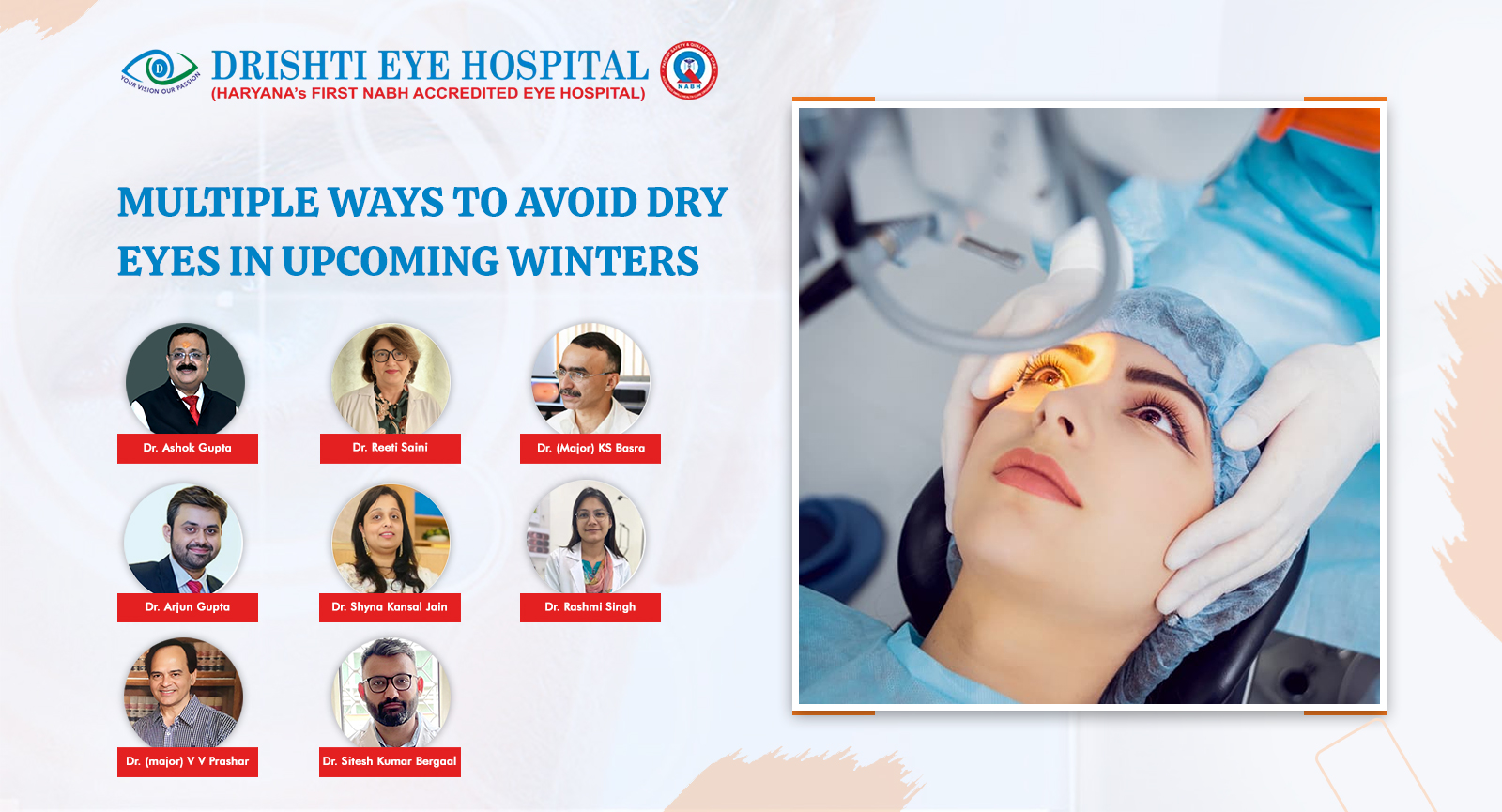Winter is almost in the corner with the dry eyes issue. When the temperature drops and the air grows drier, our eyes become more prone to dryness, irritation, and discomfort. If you are one of the millions who suffer from dry eyes you understand how frustrating the symptoms can be, especially during the winter. The good news is that there are numerous things you can do to avoid and manage dry eyes during the winter months. In this blog post, we’ll give you some tips for keeping your eyes healthy and happy during winter. Besides that, we’ll also tell you about the top Eye Surgeons where you can get the treatment at your convenience.
What is the Root Cause of Dry Eyes?
Tears are produced by the glands above your eyes to help lubricate the surface of your eyes. Water, fatty oils, and mucus are the components that makeup tears. Together, the three elements help to maintain the clarity and infection-prevention of your eyes. Insufficient tear production by your glands or an imbalance in the composition of your tears might lead to dry eyes. This may cause your tears to evaporate more quickly leaving you with dry eyes.
The List of Considerations To Follow To Avoid Dry Eyes
Artificial Tears
Eye drops are an efficient and rapid way to treat dry, irritated eyes. Using them replenishes the moisture in your eyes, similar to moisturising your face when it becomes dry. Eye drops that simulate tears are available over the counter at most pharmacies and opticians. If you wear contact lenses, ensure that the formula you’re using is compatible with them. To fight dryness, apply eye drops throughout the day (up to six times). However, you should read the label or else you can go to the eye hospital and consult your pharmacist to ensure that you are not using them excessively, as this can cause additional irritation.
Drink More Fluids
Dehydration is surprisingly common during the winter. Drink plenty of water, and don’t be afraid to eat a hot bowl of soup. Staying hydrated keeps your lacrimal and oil glands healthy, allowing them to produce sufficient tears that do not evaporate too soon.
Use Less Screen Time
We typically spend more time indoors during the winter, which translates to increased screen time. Your eyes may tire from the increased screen time and develop dry eyes. By adhering to the 20-20-20 rule, these problems can be avoided. Look up from your screen every 20 minutes and spend 20 seconds focusing on something 20 feet away. Your eyes can unwind and refocus as a result.
Limit the use of contact lenses
Contact lenses might be tough to use when you have dry eyes in the first place, but you may be unaware that they can aggravate your symptoms and irritate your eyes, causing redness, irritation and pain. Not to mention that winter allergens such as dust and mold can adhere to your lenses and aggravate your allergy symptoms. Limit your usage of contacts and wear glasses as much as possible.
Wear your sunglasses
Sunglasses are useful on more than just hot, sunny days. During the winter, the sun is low in the sky and can be as dazzling and hazardous to your eyes. In addition to irritating your eyes, it can reflect off of stark white objects like snow and ice, resulting in glare and even burns on the cornea. You can shield your eyes from the drying effects of the wind by donning sunglasses. Prescription eyewear is also functional on cloudy days.
Visit The Best Eye Hospital
If your eyes are prone to becoming very dry or irritated, see a top Eye Surgeon at Drishti
Eye Hospital before the winter season begins. Various treatment choices are available to you, such as prescription medicines and in-office procedures.
Final Words
Dry eyes are a most common issue in the winter, the abovementioned tips can help to reduce this problem. By following these suggestions, you can avoid dry eyes and enjoy the winter months without discomfort or pain. If you have severe or persistent dry eye, you should seek expert help.



